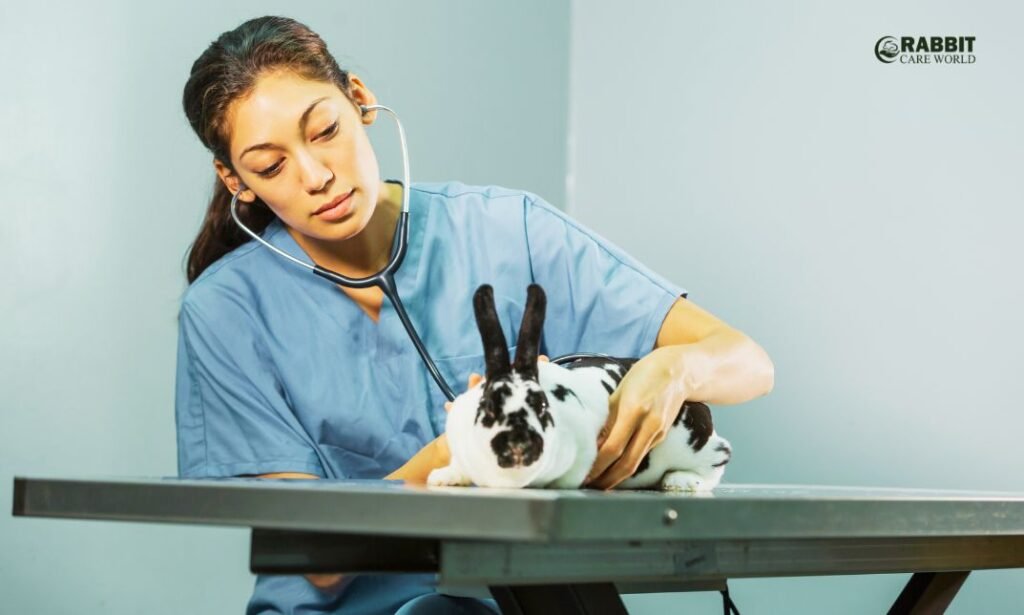Questioning Whether Can Guinea Pigs Eat Coconut? Yes, guinea pigs can eat coconut, but with caution. It should be given in moderation.
Guinea pigs, with their small size and sensitive digestive systems, require a specific diet. While fresh hay, vegetables, and fruits are common staples, pet owners often wonder about other treats. Coconut, a tropical delight loved by many humans, poses a question for guinea pig care.
Is it safe for these little pets? Coconut contains high fat and sugar, which can be problematic. Overconsumption can lead to obesity or digestive issues. Yet, in small amounts, it might provide a tasty treat. This blog explores the benefits and risks of feeding coconut to guinea pigs. We will help you make an informed decision for your pet’s health.
Table of Contents
ToggleIntroduction To Guinea Pig’s Diet
Guinea pigs are adorable and friendly pets. They require a balanced diet to stay healthy. Understanding their dietary needs is crucial for their well-being. Let’s dive into what makes a perfect diet for your furry friend.
Basic Nutritional Needs
Guinea pigs need a diet rich in fiber. Hay should be their main food. It keeps their teeth in check and aids digestion. They also require fresh vegetables. These provide essential vitamins and minerals.
Vitamin C is vital for guinea pigs. They can’t produce it on their own. Include foods like bell peppers and kale. These are high in Vitamin C. Fresh water should always be available. Change it daily to keep it clean and fresh.
Common Foods
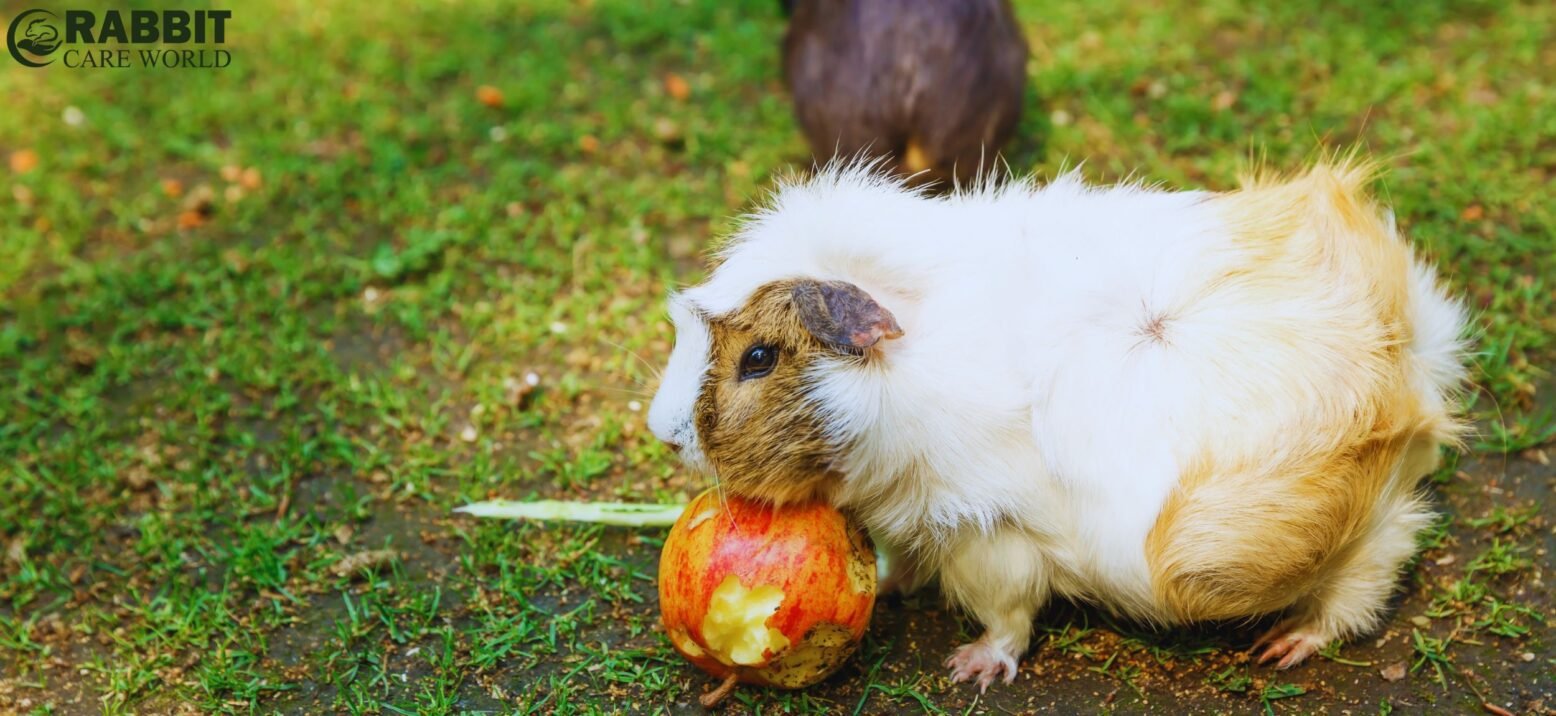
Guinea pigs enjoy a variety of foods. Fresh fruits like apples and berries are safe in moderation. Avoid citrus fruits. They can cause mouth sores.
Leafy greens are excellent choices. Offer spinach, parsley, and romaine lettuce. Avoid iceberg lettuce. It’s low in nutrients and can cause digestive issues.
Pellets designed for guinea pigs are also important. They provide a balanced mix of nutrients. Ensure they are free from added sugars and artificial colors.
Coconut Nutritional Profile
Understanding the nutritional profile of coconut is crucial when considering it for your guinea pig’s diet. Coconut, while tasty and rich, contains specific nutrients that can impact your pet’s health. Let’s break down its nutritional components under key headings.
Vitamins And Minerals
Coconut offers a variety of essential vitamins and minerals. These can be beneficial in small amounts.
- Vitamin C: Essential for guinea pigs, but coconut has minimal amounts.
- Iron: Helps in forming red blood cells.
- Potassium: Regulates fluid balance and muscle function.
- Magnesium: Important for nerve function and bone health.
Caloric Content
The caloric content of coconut is significant. This can be a concern for small animals like guinea pigs.
| Nutrient | Amount per 100g |
|---|---|
| Calories | 354 |
| Fat | 33g |
| Carbohydrates | 15g |
| Protein | 3g |
Given its high caloric and fat content, coconut should be an occasional treat. Regular consumption can lead to weight gain and health issues.
Health Benefits Of Coconut
Coconuts are not just a tropical treat for humans. They can also offer health benefits to guinea pigs. While moderation is key, introducing coconut into a guinea pig’s diet can be beneficial. Let’s explore how coconut can boost their health.
Boosting Immunity
Coconut is rich in antioxidants. These help fight off free radicals. Free radicals can weaken a guinea pig’s immune system. Antioxidants in coconut strengthen their defense. This means fewer illnesses and a healthier pet.
Vitamin C is another plus. Guinea pigs cannot produce this vitamin on their own. Coconut provides this essential nutrient. It supports their immune system. It also prevents scurvy, a common guinea pig disease.
Improving Digestion
Fiber is vital for guinea pigs. Coconut is a good source of fiber. It helps keep their digestive system in check. Fiber ensures smooth bowel movements. It also prevents constipation and other digestive issues.
Lauric acid in coconut also aids digestion. It helps balance gut bacteria. A balanced gut leads to better nutrient absorption. Your guinea pig will be happier and healthier.
Potential Risks Of Coconut
Feeding your guinea pig a balanced diet is crucial for its health. While coconut might seem like a tasty treat, it carries certain risks. Understanding these risks helps you make informed decisions for your pet’s diet.
High Fat Content
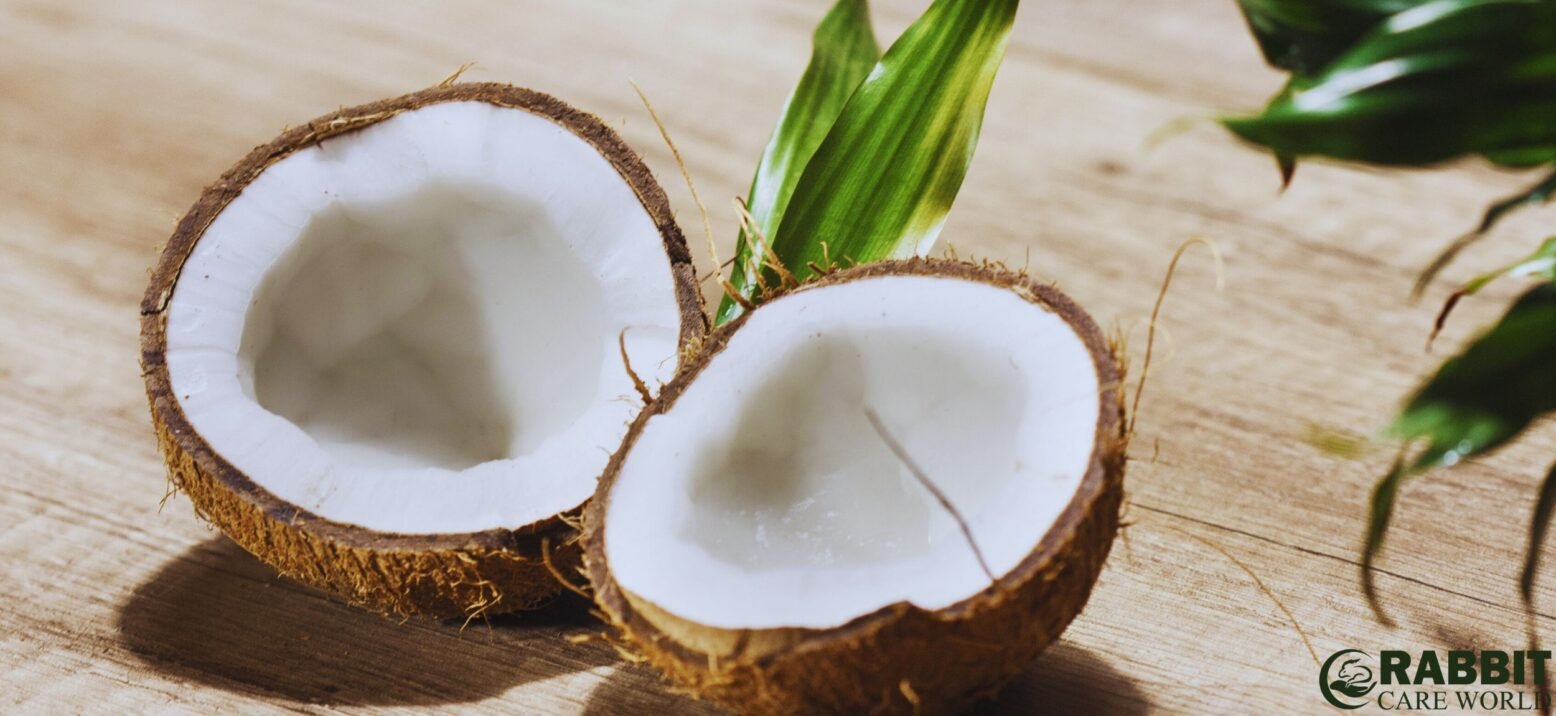
Coconut contains high levels of fat. Guinea pigs need a low-fat diet. High-fat foods can lead to obesity. Obesity can cause various health problems. These problems include heart disease and diabetes. Feeding coconut can disrupt your pet’s balanced diet. It is best to avoid giving them high-fat treats like coconut.
Possible Allergies
Guinea pigs can have allergies to certain foods. Coconut is one of these foods. Allergic reactions can be severe. Symptoms include itching, swelling, and difficulty breathing. Always monitor your guinea pig after introducing new foods. If you notice any unusual behavior, consult a vet immediately. Testing small amounts first can help in identifying any potential allergies.
Coconut In Small Quantities
Feeding your guinea pig coconut can be a delightful treat. But it’s essential to do so in small quantities. Coconut provides various nutrients but also contains fats and sugars. Moderation is key to ensure your pet remains healthy and happy. Let’s delve into the specifics of safe portions and frequency of feeding coconut to your guinea pig.
Safe Portions
Guinea pigs should only have a small amount of coconut. A piece the size of your thumb is enough. This ensures they get the nutrients without overloading on fats and sugars.
Table form can help visualize proper portions:
| Type of Coconut | Safe Portion Size |
|---|---|
| Fresh Coconut | Thumb-sized piece |
| Dried Coconut | Half a teaspoon |
Frequency Of Feeding
Feed coconut to your guinea pig only once a week. This prevents any potential digestive issues. Overfeeding can lead to obesity and other health problems. Always ensure the coconut is fresh and free from added sugars or preservatives.
A weekly schedule can help you remember:
- Choose one day of the week.
- Give the safe portion size.
- Monitor your guinea pig’s reaction.
- Adjust if any issues arise.
For example:
- Monday – Small piece of fresh coconut
Following these guidelines will help you treat your guinea pig safely. Remember, variety in their diet is important. Coconut is just an occasional treat.
Alternatives To Coconut
While coconuts are not safe for guinea pigs, there are many other options. These alternatives provide necessary nutrients and are more suitable for their diet. Let’s explore some safe and healthy choices for your furry friend.
Safe Fruits
Guinea pigs can eat many fruits that are both tasty and nutritious. Apples, with the seeds removed, are a great choice. Strawberries are safe and loved by many guinea pigs. Blueberries offer antioxidants and vitamins. Pears, in small amounts, are another option. Always ensure the fruit is fresh and washed properly.
Healthy Snacks
Vegetables make excellent snacks for guinea pigs. Carrots are a favorite and high in vitamin A. Bell peppers provide vitamin C, which guinea pigs need. Leafy greens like romaine lettuce and spinach are good too. Avoid iceberg lettuce as it can cause digestive issues. Hay is essential for their diet. It helps with digestion and keeps their teeth healthy. Pellets formulated for guinea pigs also provide necessary nutrients.
Signs Of Adverse Reactions
Feeding your guinea pig coconut might seem like a treat. But it’s crucial to watch for signs of adverse reactions. These reactions can show up in different ways. Be aware and act quickly to keep your pet safe.
Digestive Issues
Guinea pigs have delicate digestive systems. Coconut can cause stomach problems. Watch for symptoms like diarrhea or constipation. These issues can be painful for your pet. If you see these signs, stop feeding coconut. Consult your vet for advice.
Behavioral Changes
Coconut might affect your guinea pig’s behavior. Look for changes in activity levels. Your pet might seem more lethargic. Or, it might become unusually active. These changes can signal discomfort or illness. Always monitor your pet after trying new foods.
Consulting A Veterinarian
Feeding your guinea pig new foods can be exciting. But it’s important to know which foods are safe. Consulting a veterinarian ensures your pet’s health and safety. Veterinarians provide expert advice tailored to your guinea pig’s needs.
Professional Advice
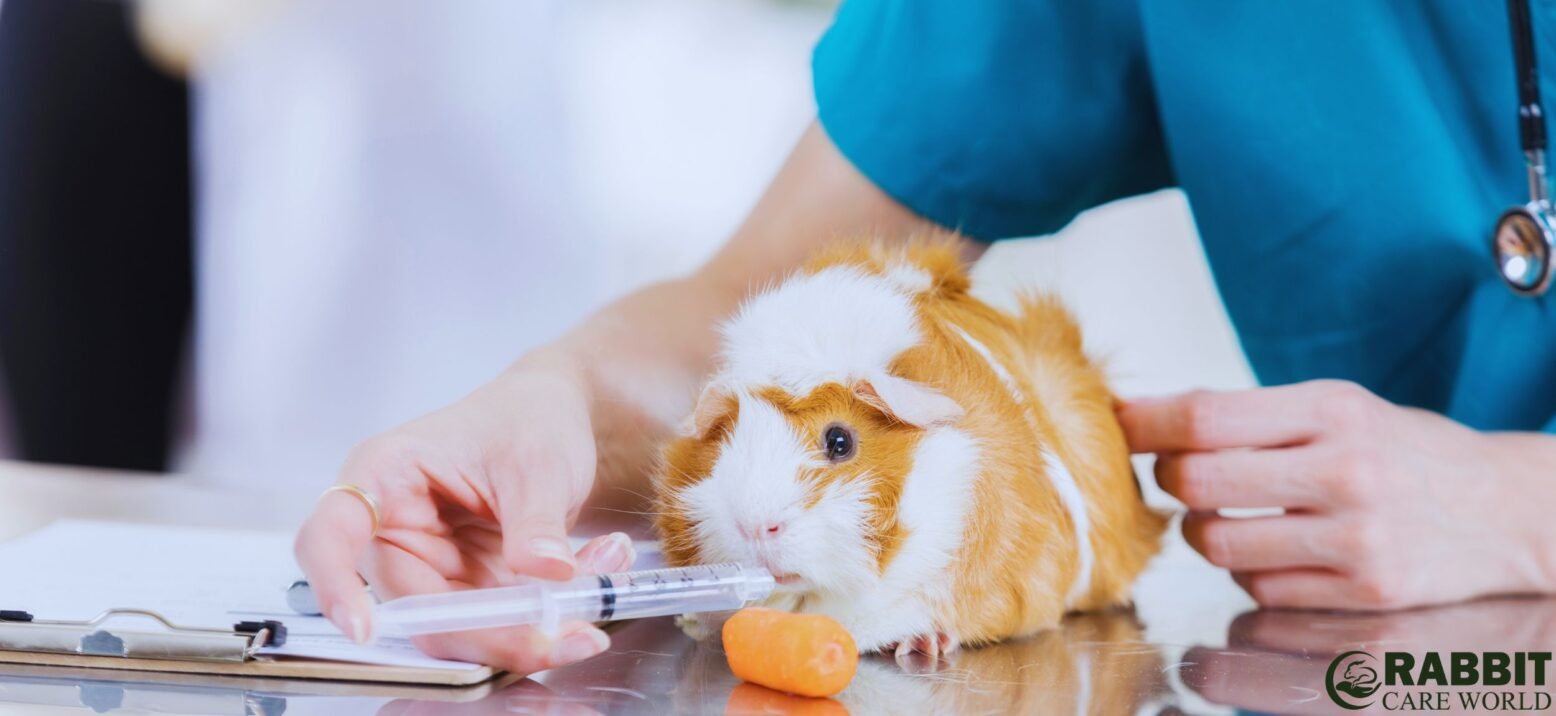
Veterinarians have specialized knowledge. They can tell you if coconut is safe for guinea pigs. Guinea pigs have sensitive digestive systems. Certain foods can cause problems. A vet can help you avoid these issues.
They will consider your guinea pig’s health history. They can advise on portion sizes. They can also suggest alternative treats. Always ask a professional before introducing new foods.
Regular Check-ups
Regular vet check-ups are crucial. They help monitor your guinea pig’s health. Vets can detect early signs of illness. They can adjust dietary recommendations as needed.
Check-ups provide peace of mind. You know your pet is healthy. You can discuss any concerns with the vet. Always keep up with regular vet visits. Your guinea pig’s health depends on it.
Homemade Treats With Coconut
Guinea pigs love variety in their diet. Coconut can be an exciting addition. It offers a refreshing taste and some nutritional benefits. Homemade treats with coconut are easy to make and healthy for your furry friend. Let’s explore some simple recipes and ensure a nutritional balance for your guinea pig.
Simple Recipes
Creating homemade treats with coconut is straightforward. Start with fresh coconut meat. Chop it into small, manageable pieces. Mix these with other guinea pig-friendly ingredients. Carrots, bell peppers, and cucumbers work well. Combine them in a small bowl. Serve in moderation to prevent overfeeding.
Another easy recipe involves coconut flakes. Sprinkle them over your guinea pig’s regular veggies. This adds a touch of sweetness. Ensure the coconut is unsweetened and free of additives. You can also blend coconut with oats. Form small balls for a crunchy treat.
Nutritional Balance
Balance is key when feeding coconut to guinea pigs. Coconut is high in fat. Too much can lead to obesity. Offer it as an occasional treat. Pair it with low-calorie vegetables. This helps maintain a healthy diet.
Coconut provides fiber and vitamins. These are good for guinea pigs. It also has natural sugars. Monitor your guinea pig’s intake. Avoid giving coconut too frequently. A balanced diet promotes overall health and happiness.
Monitoring Your Guinea Pig’s Health
Monitoring your guinea pig’s health is crucial when introducing new foods like coconut. Regular check-ups and observations help ensure they remain healthy and happy. Below are some key areas to focus on:
Daily Observations
Observe your guinea pig daily. Look for changes in behavior or appearance. Healthy guinea pigs are active and have shiny coats. Check their eyes, nose, and mouth for any discharge. Monitor their droppings as well. They should be regular and well-formed.
Weight Management
Weigh your guinea pig weekly. Use a kitchen scale for accuracy. Record their weight to spot any fluctuations. A sudden change in weight can indicate health issues. Maintaining a healthy weight is crucial for their well-being.
| Signs to Monitor | Healthy Indicators |
|---|---|
| Activity Level | Active and playful |
| Coat Condition | Shiny and smooth |
| Eyes, Nose, Mouth | Clear, no discharge |
| Droppings | Regular, well-formed |
| Weight | Stable, no sudden changes |
- Check for changes in behavior
- Inspect their eyes, nose, and mouth
- Monitor their droppings
- Weigh them weekly
- Observe daily
- Check weight weekly
- Record observations
By following these steps, you can ensure your guinea pig remains healthy. Regular monitoring is key to their well-being.
Hydration And Coconut Water
Hydration is crucial for guinea pigs. Their small bodies can dehydrate quickly. Coconut water is an excellent natural drink for humans. But what about guinea pigs? It is important to understand the benefits and risks of coconut water for these tiny pets.
Benefits Of Coconut Water
Coconut water is rich in vitamins and minerals. It contains potassium, sodium, and magnesium. These nutrients are essential for hydration. Coconut water also has antioxidants. These can help combat free radicals in your guinea pig’s body. It may even support their immune system. But always in moderation.
Hydration Tips
Fresh water should always be available. Use a water bottle or bowl. Monitor their drinking habits. Ensure they drink enough daily. Coconut water can be an occasional treat. Offer small amounts once a week. Watch for any digestive issues. If they occur, stop giving coconut water. Always consult a vet for advice.
Long-term Dietary Planning
Long-term dietary planning is key for the health and happiness of your guinea pig. To ensure they thrive, their diet must be balanced and varied. This section dives into important aspects of long-term dietary planning for guinea pigs, focusing on maintaining a balanced diet and incorporating a variety of foods.
Balanced Diet
A balanced diet for guinea pigs includes:
- Hay: Timothy hay is essential. It aids digestion and keeps teeth healthy.
- Fresh Vegetables: Offer a mix of leafy greens, such as romaine lettuce and kale.
- Fresh Fruits: Give small portions of fruit like apples and strawberries as treats.
- Pellets: Choose high-quality, vitamin C enriched pellets specifically for guinea pigs.
- Water: Fresh, clean water must always be available.
Hay should make up the majority of guinea pigs diet. Vegetables and pellets should complement the hay, providing necessary nutrients. Too much fruit can lead to obesity and other health issues, so give it sparingly.
Variety In Foods
Offering a variety of foods keeps your guinea pig interested and ensures they get a range of nutrients. Here are some options:
| Food | Frequency |
|---|---|
| Carrot | Once a week |
| Bell Pepper | Three times a week |
| Cucumber | Twice a week |
| Spinach | Twice a week |
| Blueberries | Occasionally |
Introduce new foods slowly. Monitor your guinea pig for any signs of digestive upset. Varying their diet will help prevent boredom and ensure they receive diverse nutrients.
Common Misconceptions
Many guinea pig owners wonder if their pets can eat coconut. There’s a lot of information out there, and not all of it is accurate. Some common misconceptions about feeding coconut to guinea pigs can lead to confusion. Let’s clear up these myths and get the facts straight.
Myths About Coconut
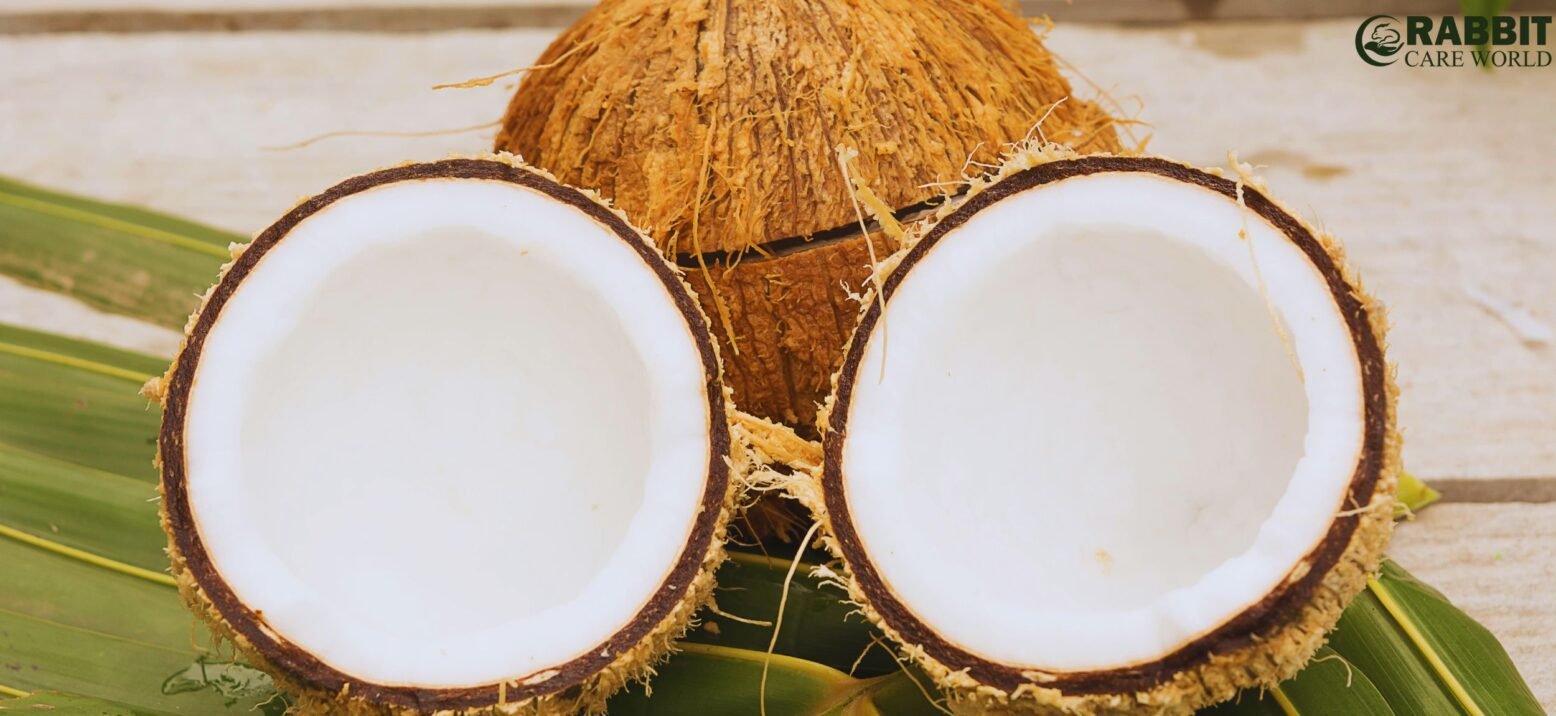
One myth is that coconut is safe for guinea pigs. This isn’t true. Coconut has high fat and sugar content. Guinea pigs can’t digest these well. Another myth claims coconut provides essential nutrients. Guinea pigs get their nutrients from hay, vegetables, and pellets.
There’s also a belief that coconut water is a healthy treat. This is false. Coconut water has too much sugar for guinea pigs. Some people think dried coconut is fine. This is incorrect. Dried coconut is even higher in sugar and fat.
Clarifying Facts
Guinea pigs need a low-fat, low-sugar diet. Coconut does not fit this. Fresh vegetables and hay are their best food sources. Always check the nutritional content of treats.
Guinea pigs need vitamin C. Coconut doesn’t provide this. Stick to foods that do. Guinea pigs have sensitive digestive systems. Avoid giving them foods that are hard to digest.
Always consult a vet before introducing new foods. This ensures your pet’s health and safety. Remember, not all human foods are safe for guinea pigs. Stay informed and cautious.
Comparing Coconut To Other Foods
When considering adding new foods to your guinea pig’s diet, it’s important to compare the nutritional value and health impacts of each option. This helps ensure your furry friend gets the best nutrition possible. Let’s dive into how coconut stacks up against other common guinea pig foods.
Nutritional Comparisons
| Food | Calories | Fat | Fiber | Vitamin C | Sugar |
|---|---|---|---|---|---|
| Coconut | 354 kcal per 100g | 33g | 9g | 2.4mg | 6g |
| Carrot | 41 kcal per 100g | 0.2g | 2.8g | 5.9mg | 4.7g |
| Bell Pepper | 31 kcal per 100g | 0.3g | 2.1g | 80.4mg | 4.2g |
| Spinach | 23 kcal per 100g | 0.4g | 2.2g | 28.1mg | 0.4g |
Health Impact
Feeding your guinea pig coconut can have several health impacts. Coconut is high in calories and fat, which may lead to weight gain in guinea pigs. This is not ideal since guinea pigs need a low-fat diet.
Coconut also has low Vitamin C. Guinea pigs cannot produce their own Vitamin C. They need it from their diet. Low Vitamin C levels can lead to scurvy, a disease that causes joint pain and lethargy.
In comparison, Bell Peppers are a better option. They are low in calories and fat. Bell Peppers are rich in Vitamin C, which is crucial for guinea pigs. They help in maintaining healthy bones and skin.
Carrots are also a good choice. They provide more Vitamin C than coconut, though not as much as bell peppers. Carrots have less fat and fewer calories than coconut, making them a healthier treat.
Spinach is another excellent food for guinea pigs. It is low in calories and fat. Spinach has a good amount of Vitamin C, although not as much as bell peppers. It also provides essential nutrients like iron and calcium.
In short, while coconut can be a tasty treat, it should not be a regular part of your guinea pig’s diet. Opt for foods like bell peppers, carrots, and spinach to ensure a balanced and healthy diet for your pet.
Conclusion And Recommendations
In the ‘Conclusion and Recommendations’ section, we will sum up the key points about guinea pigs and coconut. This includes a quick look at what we found and some final advice for pet owners.
Summary Of Findings
Our research shows that guinea pigs can eat coconut in small amounts. Coconut has some nutrients, but it is high in fat and sugar. Too much coconut can lead to obesity and other health problems.
Guinea pigs need a diet rich in Vitamin C, fiber, and low in fat. Coconut does not meet these dietary needs. It can serve as an occasional treat but should not be a regular part of their diet.
Final Advice
Offer coconut to your guinea pig sparingly. Always watch for any signs of digestive trouble. Fresh fruits and vegetables are better choices for regular treats.
Consult with a vet before introducing new foods to your pet. Your guinea pig’s health should always come first.
Frequently Asked Questions
Can Guinea Pigs Eat Coconut?
Yes, but only in small amounts. Coconut is high in fat.
Is Coconut Safe For Guinea Pigs?
Small amounts are safe. Too much can cause digestive issues.
How Often Can Guinea Pigs Have Coconut?
Rarely. Coconut should be an occasional treat, not a regular part of their diet.
What Are The Benefits Of Coconut For Guinea Pigs?
It provides some vitamins and minerals but is high in fat.
Can Baby Guinea Pigs Eat Coconut?
No. Baby guinea pigs should not eat coconut. Stick to hay and vegetables.
Are There Risks Of Feeding Coconut To Guinea Pigs?
Yes. High fat content can lead to obesity and digestive problems.
How Should I Serve Coconut To My Guinea Pig?
Offer a small, fresh piece. Avoid dried or sweetened coconut.
What Other Fruits Can Guinea Pigs Eat?
Guinea pigs can eat apples, bananas, and strawberries in moderation.
Conclusion
Coconut is not the best treat for guinea pigs. It contains too much fat. High-fat content can cause health issues in these small pets. Stick to safe, fresh vegetables and fruits. Always ensure their diet is balanced. Watch for any signs of discomfort.
Your guinea pig’s health depends on a proper diet. Keep them happy and healthy with the right foods. Consult a vet for any doubts.


